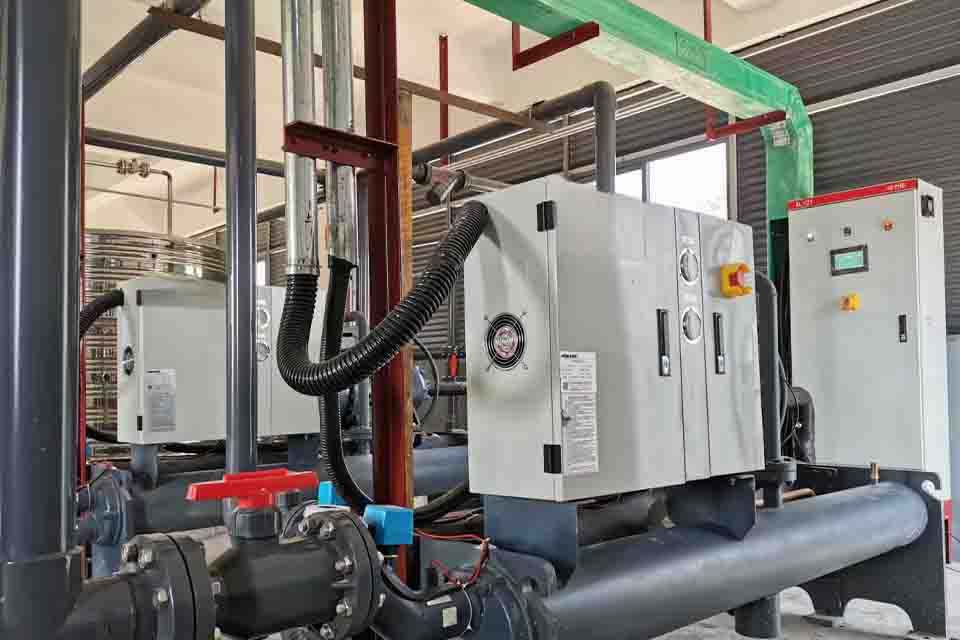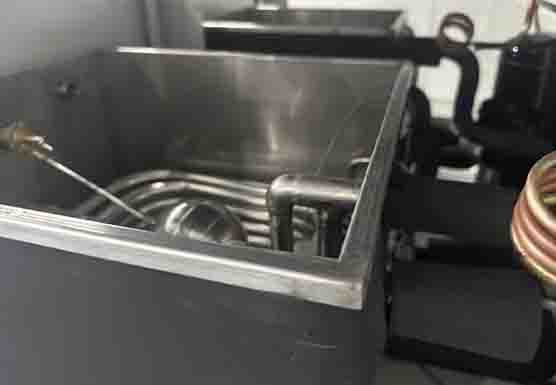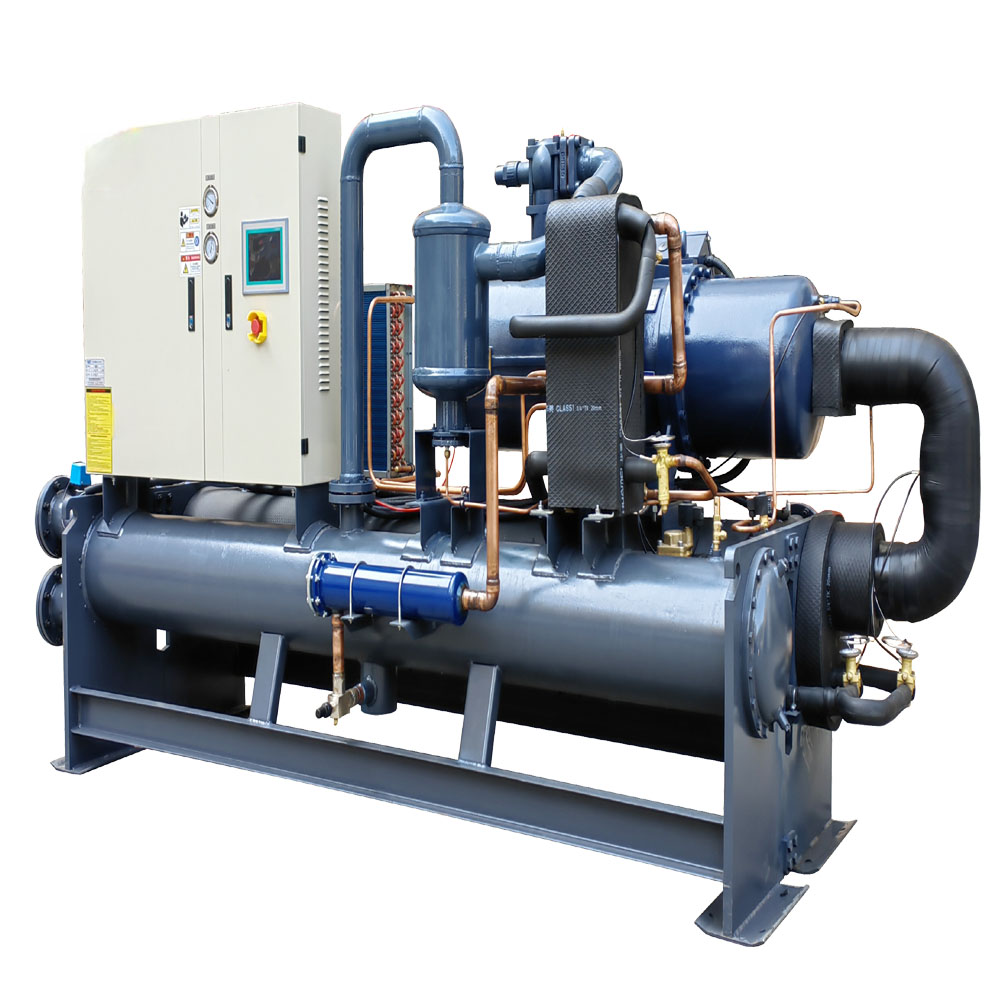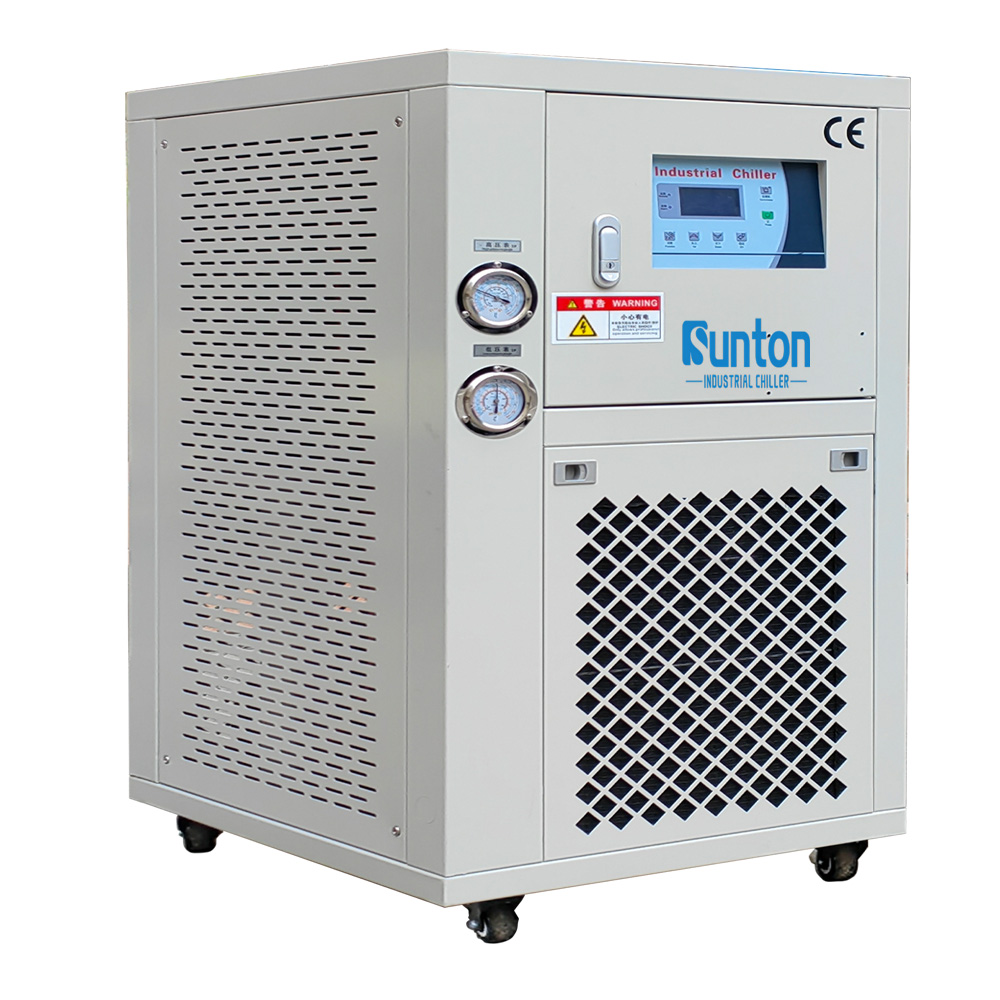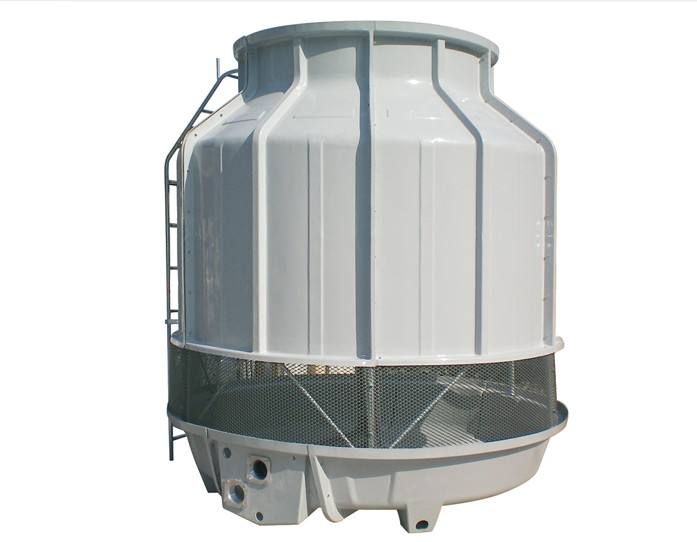-
Dalingshan Industrial Guangdong
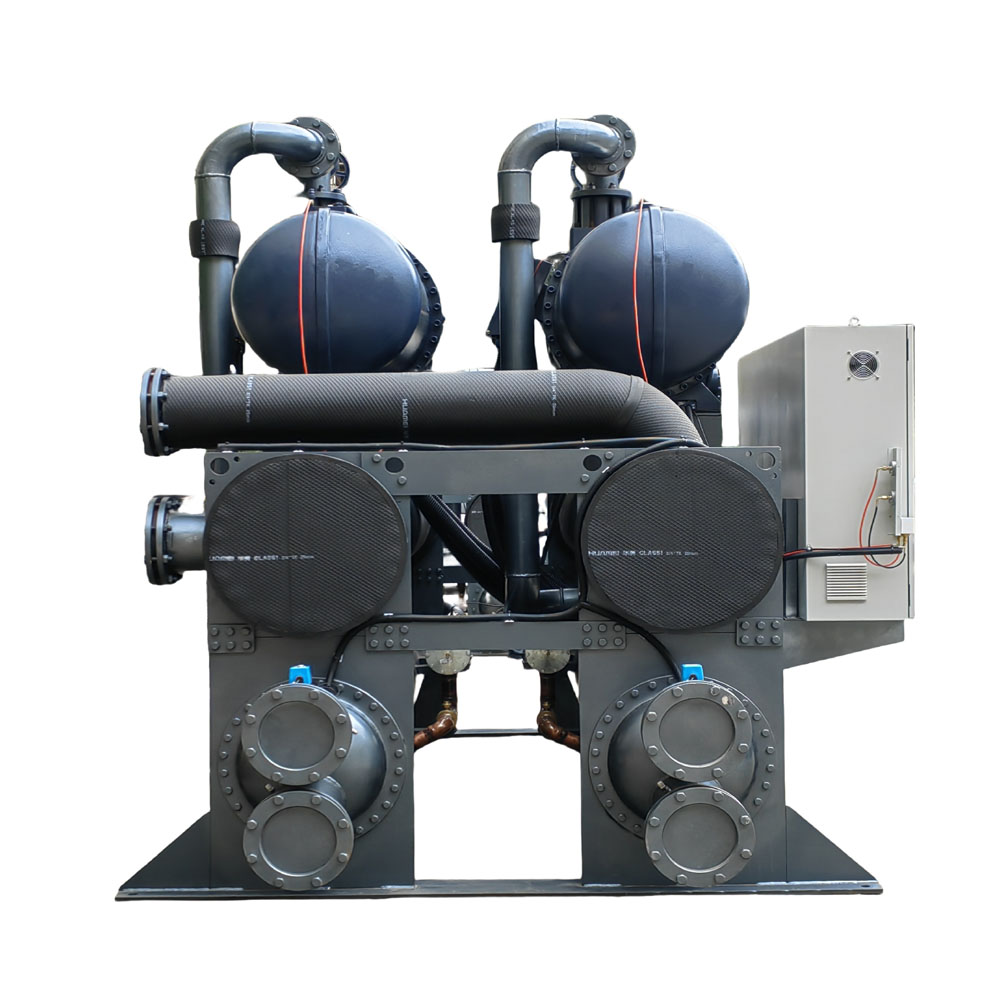
everything you want to know about glycol chillers
11 Things You Should Know About Glycol Chillers and How They Work
This article explores the essential aspects of glycol chillers and their functionality, providing valuable insights for industries relying on precise temperature control. From understanding the basics of glycol and its properties to selecting the right glycol chiller for specific applications, this comprehensive guide covers everything you need to know. We’ll explore the reasons to utilize these systems, how they operate, and why they’re a crucial component in various industrial settings. Whether you’re in the Plastics and Rubber Industry, Food and Beverage Industry, or managing a Data Center, this article will help you make an informed decision about incorporating a glycol cooling system into your operations, and also explain why it’s worth reading.
Table of Contents
What is Glycol and Why is it Used in Chillers?
Glycol is a class of organic compounds belonging to the alcohol family. In industrial applications, glycol serves as a superior heat transfer fluid, often used as an antifreeze in cooling systems. But why is glycol used in chillers? The primary reason is its ability to lower the freezing point of water, enabling cooling systems to operate at much lower temperatures without the risk of freezing. Also, the use of glycol is not limited to its antifreeze properties. It also acts as a corrosion inhibitor, protecting the metals in the chiller and piping system. A glycol chiller is an industrial refrigeration system that uses a glycol solution to provide cooling. Unlike water, which freezes at 32°F (0°C), glycol can be used at much lower temperatures, making it ideal for industrial applications.
What are the Two Types of Glycol Used in Cooling Systems?
There are two types of glycol commonly used in industrial cooling systems: ethylene glycol and propylene glycol. Both are suitable for use in cooling systems, but they have distinct properties.
- Ethylene Glycol: This type of glycol is known for its excellent heat transfer properties but is toxic if ingested. Due to its toxicity, ethylene glycol is typically used in closed-loop systems where there’s no risk of human or animal contact.
- Propylene Glycol: In contrast, propylene glycol is non-toxic and is often used in applications where there’s a possibility of incidental contact with food or beverages. Propylene glycol is a popular choice in the Food and Beverage Industry. Propylene glycol has a slightly lower heat transfer efficiency than ethylene glycol, but its safety profile makes it preferable in many scenarios.
Both ethylene and propylene glycol can be mixed with water to create a glycol mixture that meets specific cooling needs. The ratio of glycol to water determines the freezing point of the glycol and water mixture, allowing for precise temperature control. The propylene glycol to water ratio is dependent on the lowest temperature that you need to achieve. Most systems use a glycol and water mixture of about 50%, which will allow for temperatures down to -25°F. As your industrial water chiller manufacturing plant for products, we understand the nuances of different types of glycol and can help you choose the right one for your application.
How Does a Glycol Chiller Work?
A glycol chiller operates on the principles of refrigeration. The glycol chiller work is done by circulating a cooled glycol solution through a heat exchanger or a closed loop within the equipment or process that needs cooling. The refrigeration unit cools the glycol coolant is circulated through the system. The glycol absorbs heat from the process, and the heated glycol returns to the chiller to be cooled again. The cooling process is continuous, ensuring consistent temperature control.
The chiller system typically consists of a refrigeration unit, a glycol reservoir, pumps, and a piping system. The glycol line carries the cooled glycol to the point of use and then back to the chiller. Unlike a system that uses water alone, a glycol chiller can achieve and maintain temperatures well below the freezing point of water. A glycol chiller is a type of refrigeration system that is used to lower the temperature of a fluid below what is possible using water alone. This system work begins when a glycol and water mixture is pumped through the refrigeration system. The glycol water is then cooled and circulated through a series of pipes in the glycol piping to the equipment that needs to be cooled. The glycol temperature is then lowered, and the process starts again. A closed-loop system prevents any contact between the glycol and the product, making it ideal for sensitive applications. We specialize in designing glycol chillers for industrial process cooling, offering tailored solutions for rapid cooling and precise temperature control.
What are the Benefits of Using Glycol in a Chiller System?
The benefits of using glycol in a chiller system are numerous:
- Low-Temperature Operation: Glycol allows for operation at temperatures below the freezing point of water, which is crucial for many industrial processes. With a glycol chiller, you are able to prevent the pipes from freezing.
- Freeze Protection: The use of glycol as an antifreeze prevents the system from freezing and potentially bursting the pipes, even in extremely cold environments.
- Corrosion Inhibition: Glycol compounds can protect the piping system from corrosion, extending the life of the chiller system.
- Improved Heat Transfer: Glycol solutions often have better heat transfer properties than water alone, enhancing the efficiency of the cooling system.
| Feature | Water Chiller | Glycol Chiller |
| Freezing Point | 0°C (32°F) | Below -50°C (-58°F) depending on concentration |
| Temperature Range | Limited to temperatures above freezing | Can operate at temperatures well below freezing |
| Corrosion Protection | Minimal | Often includes corrosion inhibitors |
| Heat Transfer | Good | Can be superior to water, depending on the glycol concentration |
| Applications | General cooling, HVAC | Industrial process cooling, low-temperature applications |
| Maintenance | Regular maintenance required | Regular maintenance required, with attention to glycol levels |
| Cost | Generally lower initial cost | Higher initial cost due to the addition of glycol |
| Safety | Non-toxic | Propylene glycol is non-toxic; ethylene glycol is toxic |
| Efficiency | Efficient at temperatures above freezing | Efficient at a wider range of temperatures |
| Environmental Impact | Low environmental impact | Depends on the type of glycol used and disposal methods |
| Freeze Protection | Requires additional measures in cold climates | Built-in freeze protection |
| Use in Food Industry | Safe for use | Propylene glycol is safe; ethylene glycol is not recommended |
Using glycol can enhance the performance and longevity of your cooling system, especially in demanding industrial cooling applications. As a manufacturer of glycol chillers, we ensure that our systems are designed to maximize these benefits, providing reliable and efficient cooling solutions. The amount of glycol that you need to use will depend on the lowest temperature that you need to reach.
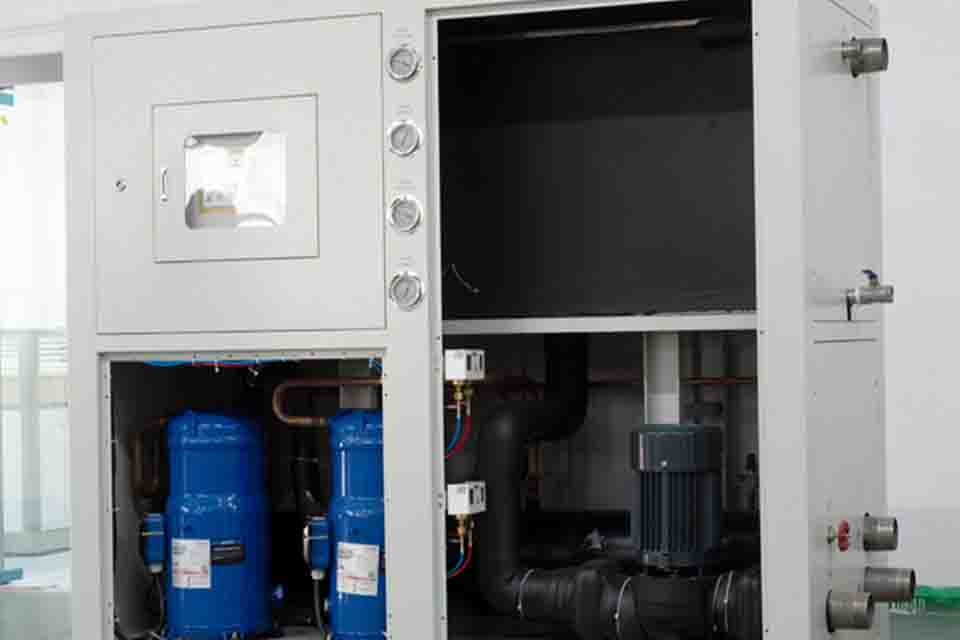
How Does a Glycol Cooling System Differ from a Water Chiller?
While both glycol cooling systems and water chillers are used for cooling, they differ significantly in their capabilities and applications. A water chiller uses water as the cooling medium, which is effective for temperatures above freezing. However, a glycol cooling system is designed for environments where the temperature may drop below freezing or when the process itself requires sub-freezing temperatures. While water can be used in some chilling systems, it is not effective in low-temperature environments. A water chiller is a device that removes heat from a liquid via a vapor-compression, adsorption refrigeration, or absorption refrigeration cycle. The cooled liquid can then be circulated through a heat exchanger to cool equipment or another process stream (such as air or process water).
Glycol chillers are better suited for use in industrial cooling systems that require lower temperatures or operate in cold environments. The glycol chiller is an industrial refrigeration unit that uses a mixture of glycol and water to provide cooling. The glycol is a type of antifreeze that lowers the freezing point of the water, allowing the chiller to operate at lower temperatures without freezing. For instance, in the Plastics and Rubber Industry, a glycol chiller can provide the rapid cooling needed for injection molding processes. In contrast, a water chiller might be sufficient for less demanding HVAC applications.
What is the Right Ratio of Glycol to Water in a Chiller System?
Determining the correct ratio of glycol to water is crucial for the proper functioning of a glycol chiller system. The percentage of glycol in the mixture affects the freezing point and the heat transfer efficiency. The right glycol-to-water ratio depends on the lowest temperature the system will encounter and the specific cooling needs of the application. Too much glycol can lead to reduced heat transfer efficiency, while too little can cause the system to freeze.
Our team at the industrial water chiller manufacturing plant can help you calculate the optimal glycol to water ratio for your glycol system, ensuring your chiller system operates efficiently and safely. If you have ever wondered, “How much glycol should I use in my chiller?” give us a call today. We are able to help you come up with the right ratio of glycol to water for your application. There are many different brands of glycol on the market, but they all do the same thing. If you are looking for examples of glycol, you can find them online or at your local hardware store.
How to Choose the Right Glycol Chiller for Your Needs?
Selecting the right glycol chiller involves considering several factors:
- Cooling Capacity: The chiller must have sufficient capacity to meet the cooling demands of your process.
- Temperature Requirements: Determine the lowest temperature your process requires and choose a glycol chiller that can achieve and maintain that temperature.
- Glycol Type: Select the appropriate type of glycol (ethylene or propylene) based on your application and safety considerations.
- System Design: Consider whether you need a closed-loop or open-loop system, and ensure the chiller is compatible with your existing infrastructure.
We offer a range of glycol chillers designed for various industries, including the Food and Beverage Industry, Chemical and Pharmaceutical Industry, and Medical Industry. Our expert team can guide you through the selection process, ensuring you get the most suitable chiller for your needs. The right glycol chiller will depend on the size of the area that you need to cool, as well as the temperature that you need to maintain.
What Maintenance is Required for a Glycol Chiller System?
Regular maintenance is essential for the longevity and efficiency of a glycol chiller system. Key maintenance tasks include:
- Checking Glycol Levels: Monitor the glycol concentration to ensure it’s within the recommended range.
- Inspecting for Leaks: Regularly check the glycol line and connections for any signs of leakage.
- Cleaning Heat Exchangers: Keep the heat exchanger surfaces clean to maintain optimal heat transfer.
- Monitoring System Pressure: Ensure the system pressure is within the normal operating range.
Proper maintenance, including mixing glycol with water correctly and regularly checking the glycol levels, can prevent costly repairs and downtime. If the glycol concentration is too low, it can cause problems with the chiller. The glycol should be checked on a regular basis to make sure that it is at the correct level. Glycol must be mixed with water to the proper concentration to be effective.
How Does a Glycol Chiller Benefit Various Industries?
Glycol chillers offer unique benefits across different industries:
- Plastics and Rubber Industry: Provides rapid cooling for molding and extrusion processes, improving product quality and production speed.
- Food and Beverage Industry: Maintains precise temperatures for brewing, fermentation, and food storage, ensuring product consistency and safety.
- Chemical and Pharmaceutical Industry: Offers accurate temperature control for chemical reactions and storage of temperature-sensitive materials.
- Data Centers: Helps dissipate heat generated by servers, maintaining optimal operating temperatures and preventing equipment failure.
- Medical Industry: Essential for cooling medical equipment like MRI machines and for storing biological samples at low temperatures.
As a leading manufacturer of industrial chillers, we understand the specific needs of each industry and offer customized glycol chiller solutions to meet those requirements. For example, our dairy milk chillers are specifically designed to meet the stringent temperature control requirements of dairy processing.
Why is Temperature Control Crucial in Industrial Processes?
Precise temperature control is vital in many industrial processes for several reasons:
- Product Quality: Maintaining the correct temperature ensures product consistency and quality, reducing waste and defects.
- Process Efficiency: Accurate temperature control can optimize process parameters, leading to increased efficiency and productivity.
- Equipment Protection: Proper cooling prevents overheating and extends the lifespan of machinery and equipment.
- Safety: In industries like chemical processing, precise temperature management is crucial for preventing hazardous reactions.
Our industrial chillers are designed to provide reliable and accurate temperature control, helping industries achieve their production goals while maintaining safety and efficiency. The glycol chillers are used in a variety of applications, including industrial process cooling, HVAC chillers, and cooling for data centers.
FAQs
What are the differences between ethylene glycol and propylene glycol?
Ethylene glycol offers superior heat transfer but is toxic, while propylene glycol is non-toxic and safer for applications with potential human contact. Glycol is a type of alcohol that is used in a variety of applications. Ethylene glycol or propylene glycol can be used in industrial cooling systems. Propylene glycol is non-toxic, making it a safer choice for some applications. Glycol can also be used in food and beverage applications. Glycol is a versatile fluid that can be used in a variety of applications.
Can I use different brands of glycol in my chiller system?
It’s generally recommended to stick with one brand of glycol to ensure compatibility and consistent performance. It is not recommended to mix different types of glycol or different brands of glycol, as this can cause problems with the chiller.
How often should I change the glycol in my chiller system?
The frequency of glycol replacement depends on factors like usage, glycol type, and system conditions. Regular monitoring and testing can help determine the optimal change interval. Glycol coolants should be changed every few years to ensure that the system is operating properly. The glycol can break down over time and lose its effectiveness.
What happens if the glycol concentration is too low?
If the glycol concentration is too low, the system may be at risk of freezing, leading to potential damage and operational issues. Glycol is a type of alcohol that is used in a variety of applications. If the glycol concentration is too low, it can cause the system to freeze.
Is glycol environmentally friendly?
The environmental impact of glycol depends on the type (propylene glycol is generally considered more environmentally friendly) and how it’s disposed of. Proper disposal practices are essential.
How do I know if my system needs a glycol chiller?
If your process requires temperatures below the freezing point of water or operates in a cold environment, a glycol chiller is likely necessary. Glycol chillers are used to cool fluids to very low temperatures. If you are not sure whether or not your system needs a glycol chiller, you should consult with a professional. The glycol chiller is an industrial machine that is used to cool fluids.
Conclusion
Here are the most important things to remember about glycol chillers:
- Glycol is a crucial component in chiller systems requiring low-temperature operation.
- Ethylene and propylene glycol offer different properties suited to various applications.
- Glycol chillers provide precise temperature control, freeze protection, and corrosion inhibition.
- The right glycol-to-water ratio is essential for optimal performance.
- Choosing the right glycol chiller depends on factors like cooling capacity, temperature requirements, and glycol type.
- Regular maintenance, including checking glycol levels and inspecting for leaks, is vital.
- Glycol chillers offer significant benefits across industries, including improved product quality, process efficiency, and equipment protection.
- Precise temperature control is crucial for maintaining product quality, process efficiency, and safety in industrial settings.
- As a leading manufacturer, we offer a wide range of glycol chillers designed to meet the specific needs of various industries, including Industrial Chillers For Concrete Batch Plant, HVAC Chillers, and Industrial Chillers For Hydroponic.
By understanding the principles of glycol chillers and their applications, industries can make informed decisions to optimize their cooling processes. Whether you’re in the Industrial Chillers For Textile Industry or managing a laboratory, our expert team is here to provide you with the best glycol chiller solutions for your needs. Contact us today to learn more about how our industrial chillers can benefit your operations.
Glycol is an important part of many industrial cooling systems. If you are unsure about anything related to glycol chillers, be sure to consult with a professional. They will be able to help you choose the right system for your needs and ensure that it is properly installed and maintained. When selecting a glycol chiller, it is important to choose one that is suited for use in your specific application.
